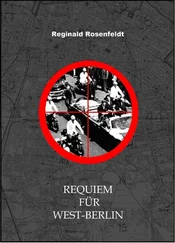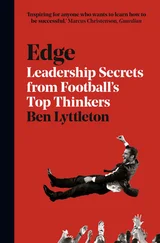Isaiah Berlin - Russian Thinkers
Здесь есть возможность читать онлайн «Isaiah Berlin - Russian Thinkers» весь текст электронной книги совершенно бесплатно (целиком полную версию без сокращений). В некоторых случаях можно слушать аудио, скачать через торрент в формате fb2 и присутствует краткое содержание. Год выпуска: 0101, Жанр: Старинная литература, на русском языке. Описание произведения, (предисловие) а так же отзывы посетителей доступны на портале библиотеки ЛибКат.
- Название:Russian Thinkers
- Автор:
- Жанр:
- Год:0101
- ISBN:нет данных
- Рейтинг книги:3 / 5. Голосов: 1
-
Избранное:Добавить в избранное
- Отзывы:
-
Ваша оценка:
- 60
- 1
- 2
- 3
- 4
- 5
Russian Thinkers: краткое содержание, описание и аннотация
Предлагаем к чтению аннотацию, описание, краткое содержание или предисловие (зависит от того, что написал сам автор книги «Russian Thinkers»). Если вы не нашли необходимую информацию о книге — напишите в комментариях, мы постараемся отыскать её.
Russian Thinkers — читать онлайн бесплатно полную книгу (весь текст) целиком
Ниже представлен текст книги, разбитый по страницам. Система сохранения места последней прочитанной страницы, позволяет с удобством читать онлайн бесплатно книгу «Russian Thinkers», без необходимости каждый раз заново искать на чём Вы остановились. Поставьте закладку, и сможете в любой момент перейти на страницу, на которой закончили чтение.
Интервал:
Закладка:
of his own, inveighed against all methods of coercion, especially those
which consisted of forcing children against their will to memorise
facts and dates and figures. In short, he behaved like an original,
enlightened, energetic, opinionated, somewhat eccentric eighteenthcentury landowner who had become a convert to the doctrines of Rousseau or the abbe Mably. His accounts of his theories and experiments fill two stout volumes in the pre-revolutionary editions of his collected works. They are still fascinating, .if only because they contain
some of the best descriptions of village life and especially of children,
both comical and lyrical, that even he had ever composed. He wrote
them in the 1 86os and 70s when he was at the height of his creative
powers. His overriding didactic purpose is easily forgotten in the
unrivalled insight into the twisting, criss-crossing pattern of the
thoughts and feelings of individual village children, and the marvellous
concreteness and imagination with which their talk and behaviour,
and physical nature round them, are described. And side by side with
this direct vision of human experience, there run the clear, firm
dogmas of a fanatically doctrinaire eighteenth-century rationalistdoctrines not fused with the life that he describes, but superimposed upon it, like windows with rigorously symmetrical patterns drawn
upon them, unrelated to the world on which they open, and yet
achieving a kind of illusory artistic and intellectual unity with it,
owing to the unbounded vitality and constructive genius of the
writing itself. It is one of the most extraordinary performances in the
history of literature.
The enemy is always the same: experts, professionals, men who
claim special authority over other men. Universities and professors
are a frequent target for attack. There are intimations of this already
in the section entitled 'Youth' of his earlier autobiographical novel.
There is something eighteenth-century, reminiscent both of Voltaire
and of Bentham, about Tolstoy's devastating accounts of the dull and
incompetent professors and the desperately bored and obsequious
students in Russia in his time. The tone is unusual in the nineteenth
century: dry, ironical, didactic, mordant, at once withering and entertaining; the whole based on the contrast between the harmonious simplicity of nature and the self-destructive complications created by
the malice or stupidity of men-men from whom the author feels
246

TOLSTOY AND E N L I G HTE N M ENT
himself detached, whom he affects not to understand, and mocks from
a distance.
We are at the earliest beginnings of a theme which grew obsessive
in Tolstoy's later life; that the solution to all our perplexities stares
us in the face-that the answer is about us everywhere, like the light
of day, if only we would not close our eyes or look everywhere but
at what is there, staring us in the face, the clear, simple, irresistible
truth.
Like Rousseau and Kant and the believers in natural law, Tolstoy
was convinced that men have certain basic material and spiritual needs,
in all places, at all times. If these needs are fulfilled, they lead harmonious lives, which is the goal of their nature. Moral, aesthetic, and other spiritual values are objective and eternal, and man's inner
harmony depends upon his correct relationship to these. Moreover, all
his life he defended the proposition-which his own novels and sketches
do not embody-that human beings are more harmonious in childhood
than under the corrupting influences of education in later life; and
also that simple people (peasants, Cossacks, and so on) have a more
'natural' and correct attitude towards these basic values than civilised
men; and that they are free and independent in a sense in which
civilised men are not. For (he insists on this over and over again)
peasant communities are in a position to supply their own material and
spiritual needs out of their own resources, provided that they are not
robbed or enslaved by oppressors and exploiters; whereas civilised men
need for their survival the forced labour of others-serfs, slaves, the
exploited masses, called ironically 'dependants', because their masters
depend on them. The masters are parasitic upon others: they are
degraded not merely by the fact that to enslave and exploit others is a
denial of such objective values as justice, equality, human dignity, love
- values which men crave to realise because they cannot help this,
because they are men-but for the further, and to him even more
important reason that to live on robbed or borrowed goods, and so fail
to be self-subsistent, falsifies 'natural' feelings and perceptions, corrodes
men morally, and makes them both wicked and miserable. The human
ideal is a society of free and equal men, who live and think by the
light of what is true and right, and so are not in conflict with each
other or themselves. This is a form-a very simple one-of the classical
doctrine of natural law, whether in its theological or secular, liberalanarchist form. To it Tolstoy adhered all his life; as much in his
'secular' period as after his 'conversion'. His early stories express this
,,
247
R U SSIAN T H I N K E R S
vividly. The Cossacks Lukashka and Uncle Yeroshka are morally
superior, as well as happier and aesthetically more harmonious beings
than Olenin in The Cossacks; Olenin knows this; indeed that is the
heart of the situation. Pierre in War and Peace and Levin in Anna
Karenina have a sense of this in simple peasants and soldiers; so does
Nekhlyudov in The Morning of a Landowner. This conviction fills
Tolstoy's mind to a greater and greater degree, until it overshadows
all other issues in his later works: Resurrection and The Death of Ivan
Ilich are not intelligible without it.
Tolstoy's critical thought constantly revolves round this central
notion-the contrast between nature and artifice, truth and invention.
When, for instance, in the I 89os he laid down conditions of excellence
in art (in the course of an introduction to a Russian translation of
Maupassant's stories), he demanded of all writers, in the first place
the possession of sufficient talent; in the second that the subject itself
must be morally important; and finally that they must truly love (what
was worthy of love) and hate (what was worthy of hate) in what they
describe- 'commit' themselves-retain the- direct moral vision of childhood, and not maim their natures by practising self-imposed, selflacerating and always illusory impartiality and detachment-or, still worse, deliberate perversion of 'natural' values. Talent is not given
equally to all men; but everyone can, if he tries, discover eternal,
unchanging attributes-what is good and what is bad, what is important
and what is trivial. Only false-'made-up'-theories delude men and
writers about this, and so distort their lives and creative activity.
Tolstoy applies his criterion literally, almost mechanically. Thus
Nekrasov, according to him, treated subjects of profound importance,
and possessed superb skill as a writer; but his attitude towards his
suffering peasants and crushed idealists, .-emained chilly and unreal.
Dostoevsky's subjects lack nothing in seriousness, and his concern is
profound and genuine; but the first condition is unfulfilled : he is
diffuse and repetitive; he does not know how to tell the truth clearly
Читать дальшеИнтервал:
Закладка:
Похожие книги на «Russian Thinkers»
Представляем Вашему вниманию похожие книги на «Russian Thinkers» списком для выбора. Мы отобрали схожую по названию и смыслу литературу в надежде предоставить читателям больше вариантов отыскать новые, интересные, ещё непрочитанные произведения.
Обсуждение, отзывы о книге «Russian Thinkers» и просто собственные мнения читателей. Оставьте ваши комментарии, напишите, что Вы думаете о произведении, его смысле или главных героях. Укажите что конкретно понравилось, а что нет, и почему Вы так считаете.










